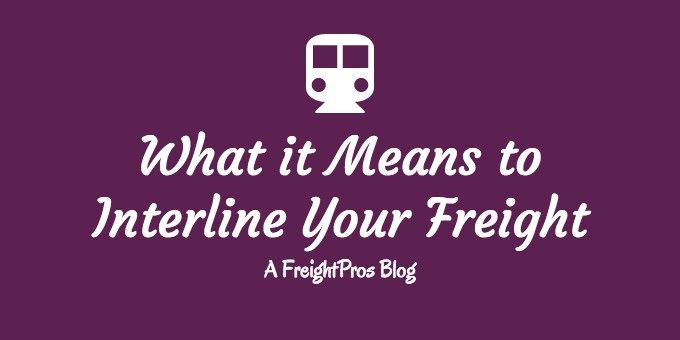
We’ve already discussed the numerous freight definitions and shipping terms that litter the LTL landscape, and today we’re going to focus on one of those terms: INTERLINE or Interline Outbound.
What is Interline?
An LTL shipment is “interlined” when the original carrier in charge of transit uses the services of another carrier to successfully deliver the freight.
This can be one of three parts of a freight’s journey: pickup, transit, or delivery. To interline freight is to have an agreement between two or more freight companies, and while multiple carriers may have hands on the freight, the original carrier will always be responsible for total freight charges to the customer.
Why Do It?
Carriers use this option to fill in gaps in their coverage maps. Though this often applies to smaller, regional carriers, that doesn’t mean that large national carriers don’t interline freight.
In fact, Roadrunner freight rates are all determined by these carriers! Essentially, the function of interlining freight is an altruistic process for the LTL shipping conglomerate as a whole. By using competitors trucks and lanes, the freight carriers are putting their customers first.
Another reason carriers interline is to save costs. Whether it be fuel, trucks, drivers, or time, cost savings for the carriers means they can pass these savings along to you, the customer.
Interline freight can sometimes take a bit longer in transit than a straight shot, but this is not always the case. It just depends on the carrier and the shipping lane. Either way, the process of interlining LTL freight is a common practice with considerable positive consequences to the industry.
Other Notes
The process of interlining freight is a common practice among many LTL carriers, so don’t be worried if your freight has been interlined. Most of the time, carrier discretion determines the various partners, but you can ask your freight broker if a shipment lane is direct or indirect for a chosen freight carrier. A direct line means one carrier will complete both the pickup and delivery of the freight, with no other carriers taking part in the shipment process.
An indirect lane means that freight will be interlined. Freight that has been interlined can often be identified by multiple pro numbers, though most of the time the carrier in charge of invoicing and billing will have one master pro number for the customer or broker to reference during the freight tracking process.